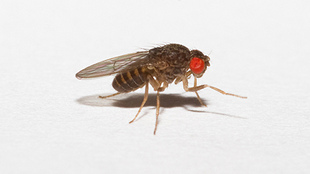 FLICKR, BRIAN GRATWICKEOrganic molecules called polyamines may help prevent memory loss in aging fruit flies, according to a study published earlier this week (September 1) in Nature Neuroscience. Researchers showed that supplementing elderly flies’ diets with a polyamine led to improved performance on a test measuring memory of scents.
FLICKR, BRIAN GRATWICKEOrganic molecules called polyamines may help prevent memory loss in aging fruit flies, according to a study published earlier this week (September 1) in Nature Neuroscience. Researchers showed that supplementing elderly flies’ diets with a polyamine led to improved performance on a test measuring memory of scents.
To test the flies’ memories, the researchers attempted to teach them to associate electric shocks with a certain scent. When they fed the polyamine spermidine to young flies, their abilities to avoid the scent associated with shocks did not improve. However, feeding spermidine to older flies appeared to slow memory loss. Additionally, expressing a polyamine synthesis enzyme in fly brain cells necessary for scent memory appeared to protect aging flies from memory loss.
Polyamines have been shown to aid in autophagy, a process cells use to digest their own contents. When the researchers genetically disrupted flies’ autophagy machinery, supplementing their diets with spermidine no longer improved their memories, suggesting that polyamines aid in memory preservation through promoting autophagy.
Polyamine levels in humans’ basal ganglia decrease ...













